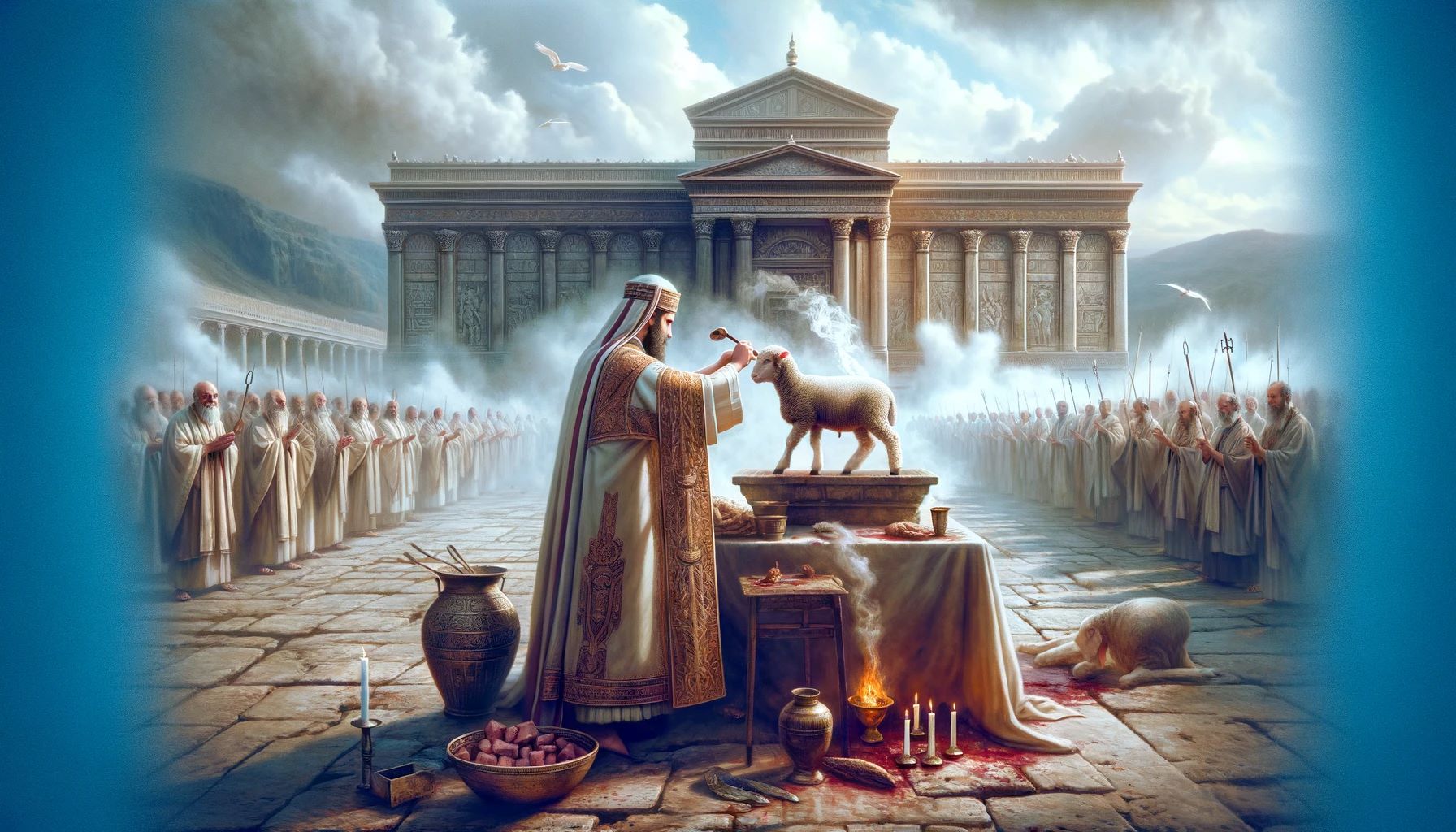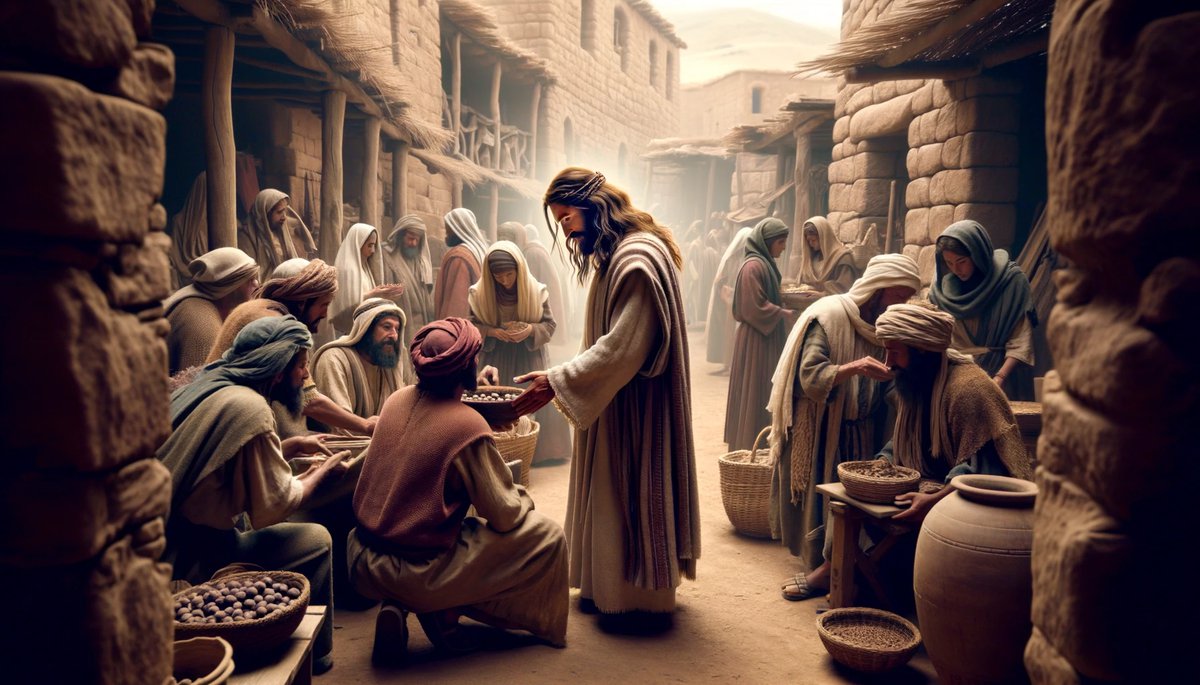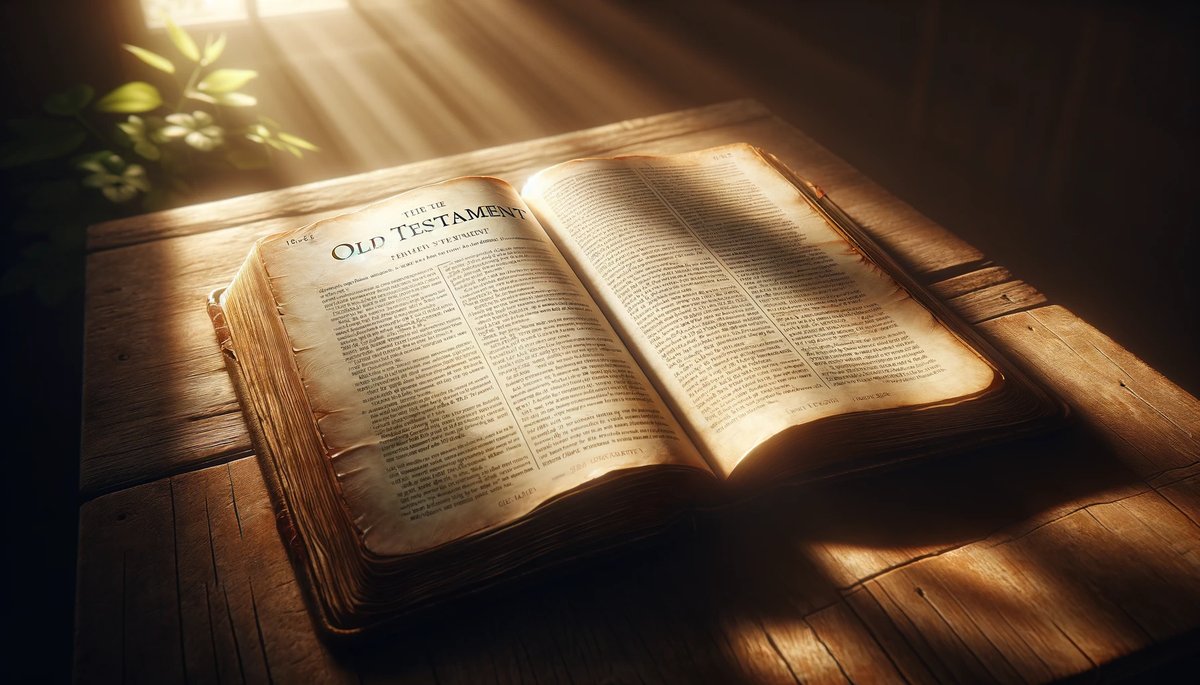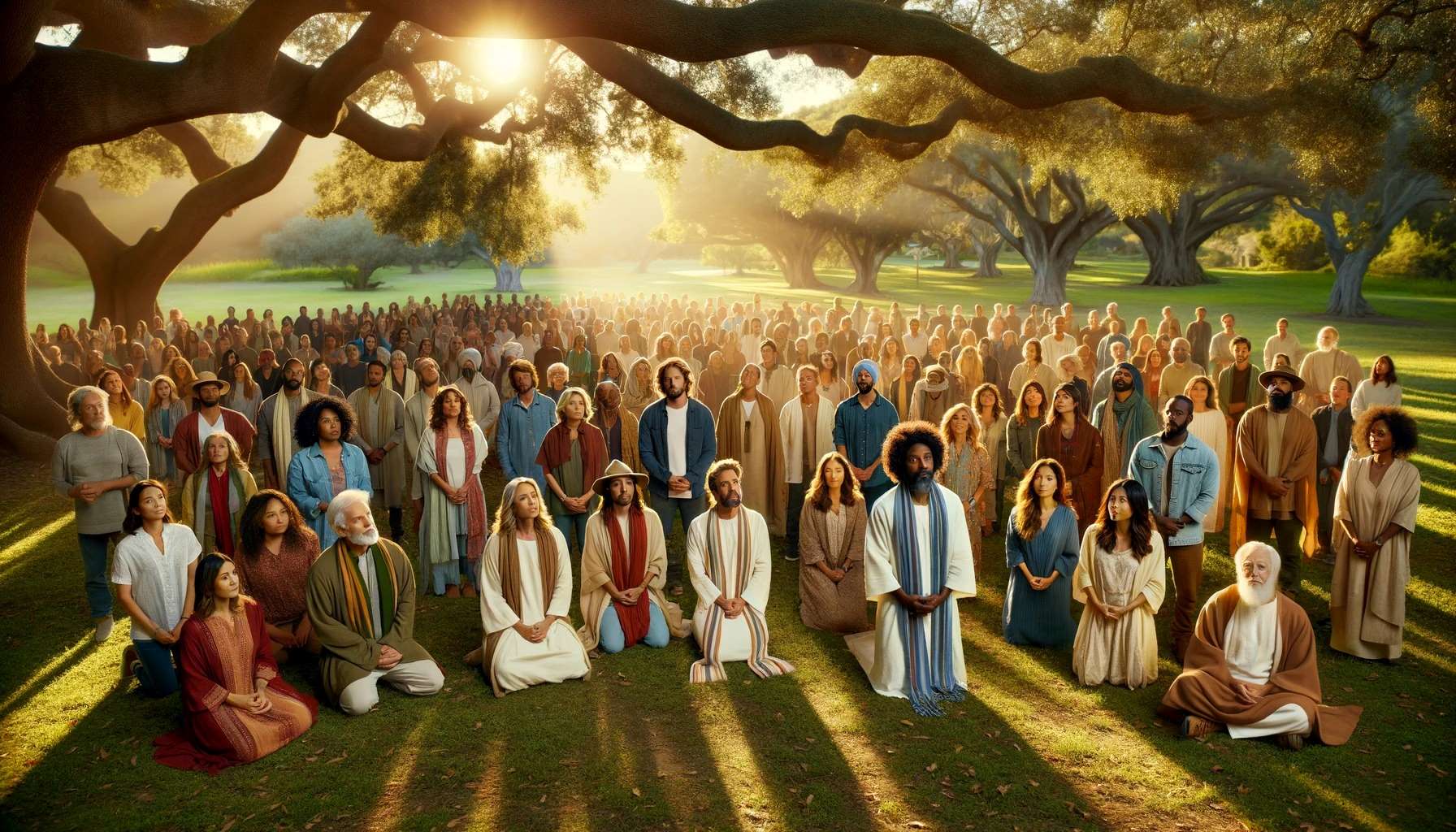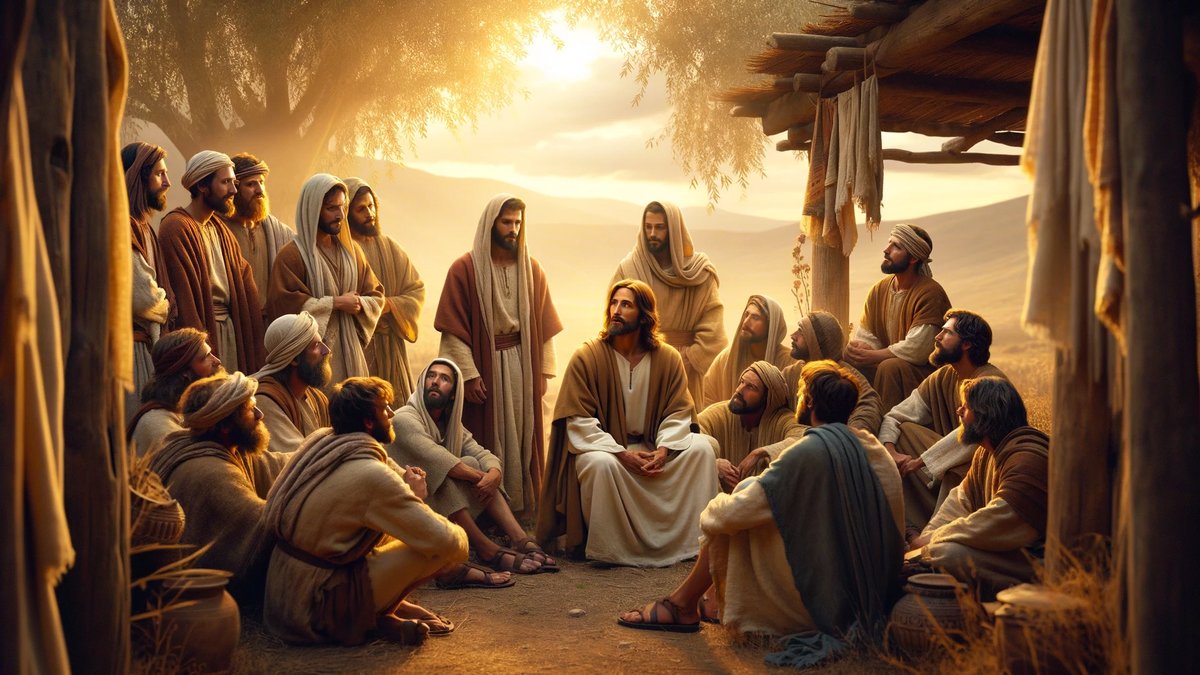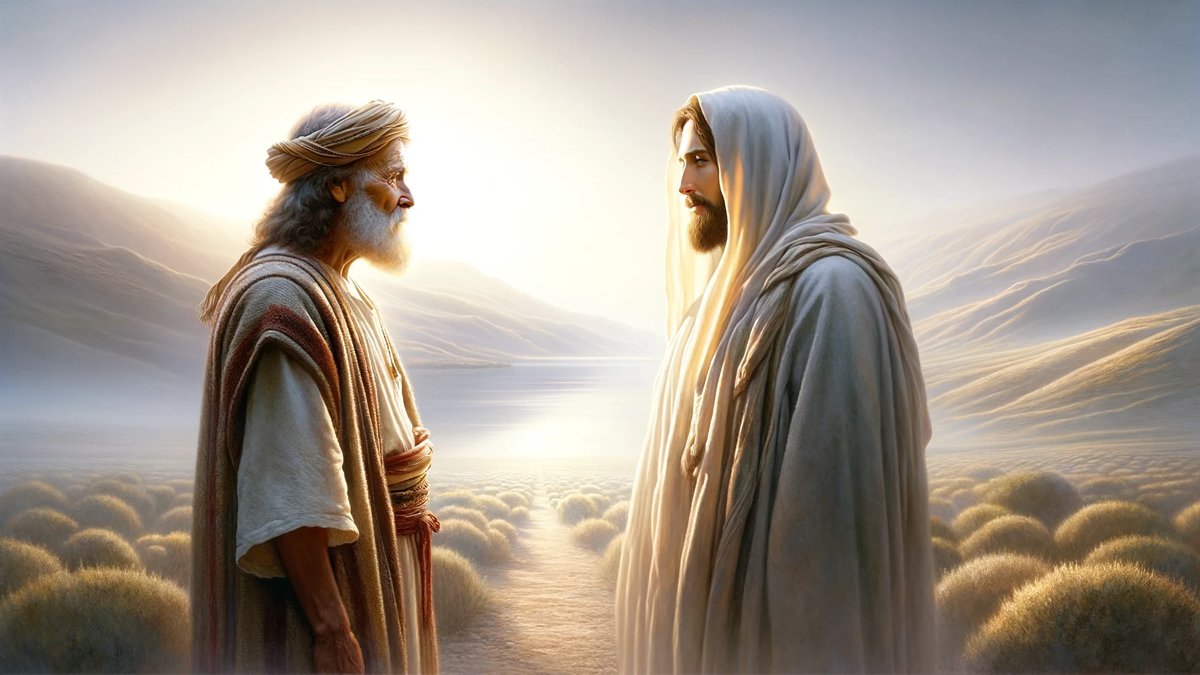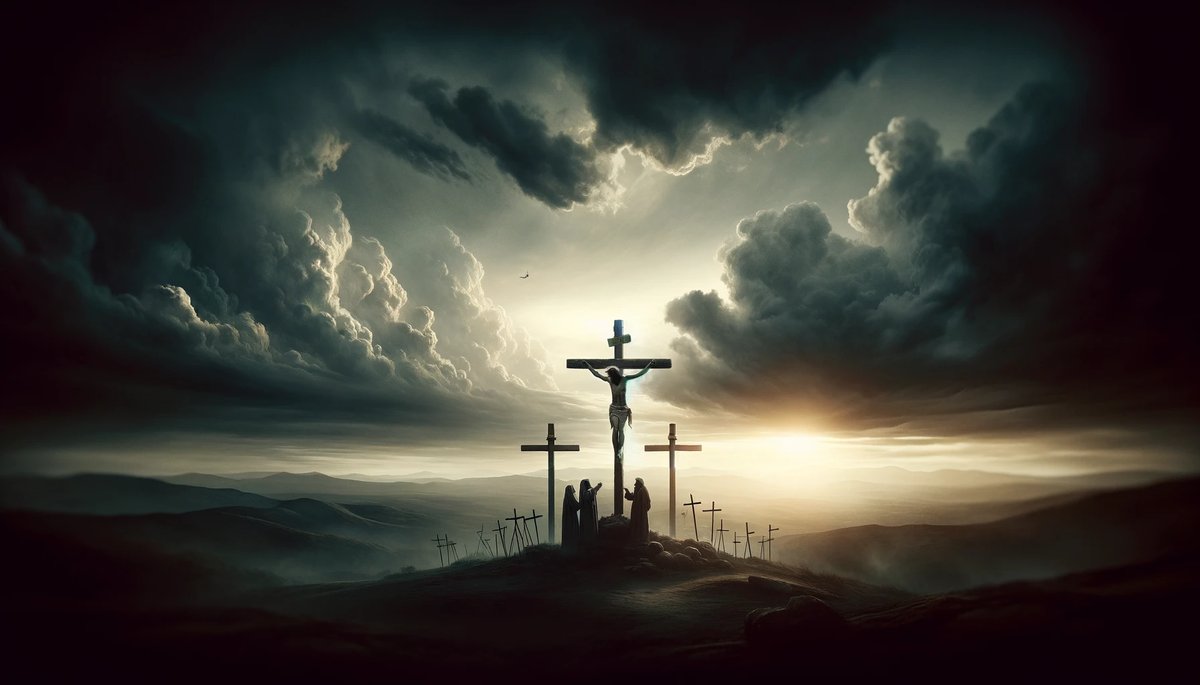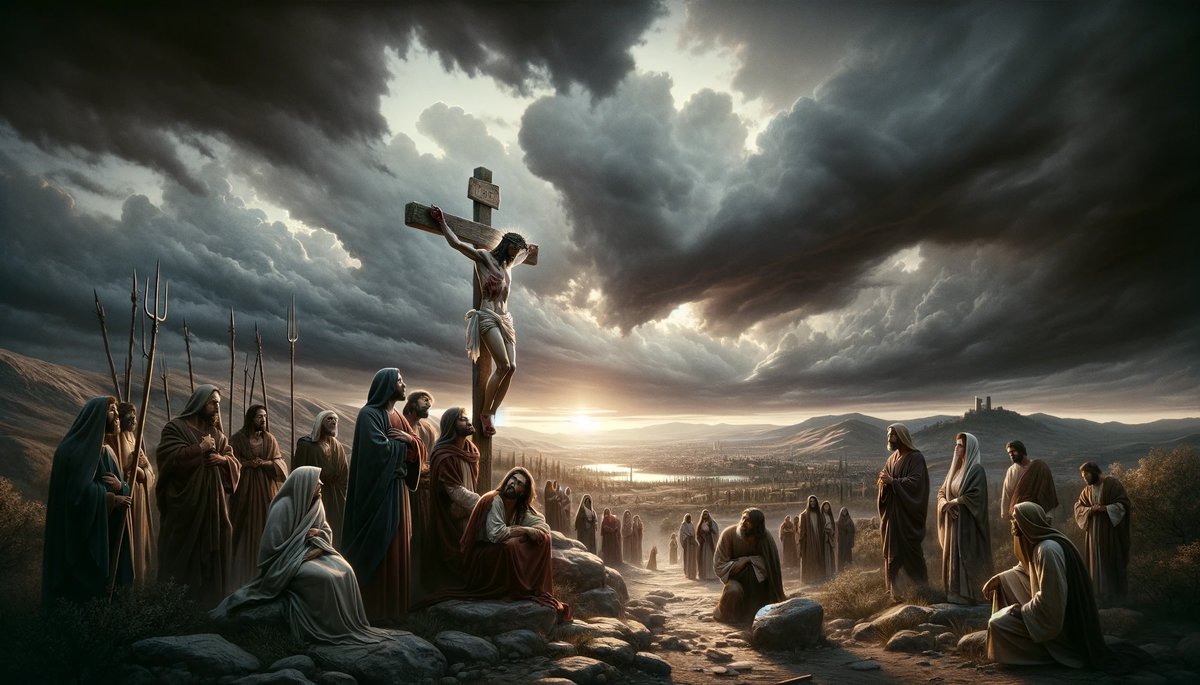Home>Christian Videos>Bible Stories>How Many Old Testament Prophecies Did Jesus Christ Fulfill
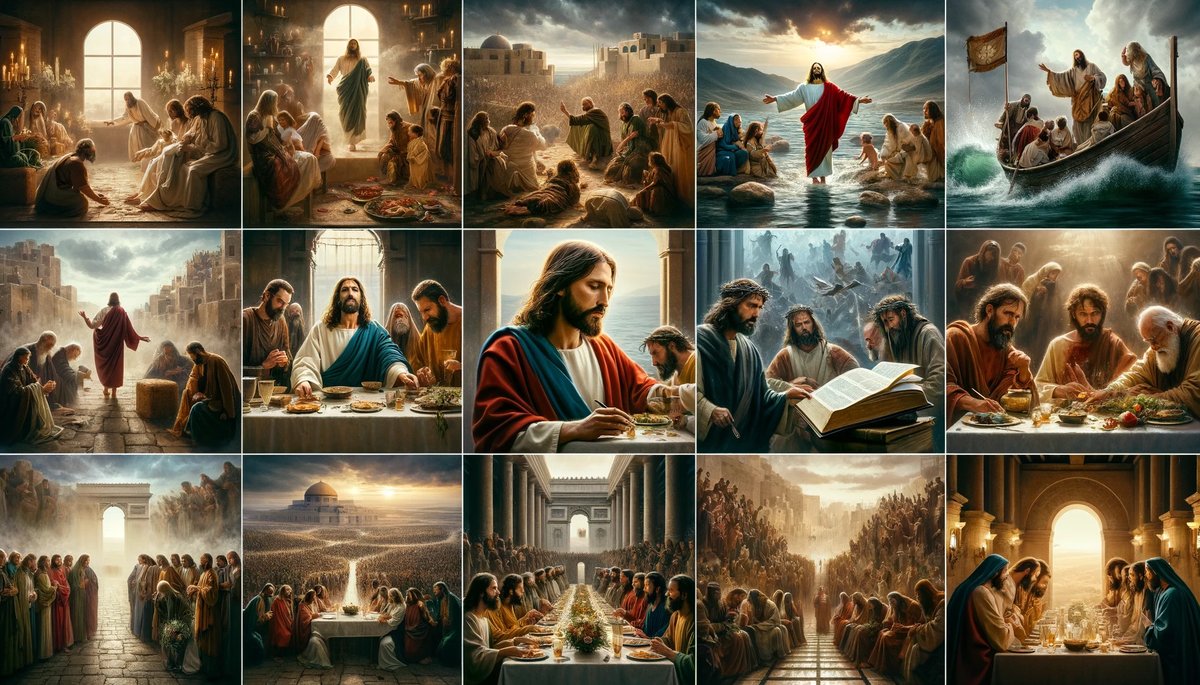

Bible Stories
How Many Old Testament Prophecies Did Jesus Christ Fulfill
Published: March 3, 2024
Ericka Andersen, an editor at Christian.net, expertly merges digital strategy with content creation, focusing on faith and societal issues. Her communication skills enhance the platform's engaging narratives, fostering meaningful dialogue on belief's impact on society.
Discover how Jesus fulfilled numerous Old Testament prophecies in the Bible, and explore the significance of these biblical stories. Uncover the fulfillment of prophecy in the life of Jesus Christ.
(Many of the links in this article redirect to a specific reviewed product. Your purchase of these products through affiliate links helps to generate commission for Christian.net, at no extra cost. Learn more)
Table of Contents
Introduction
How many Old Testament prophecies did Jesus Christ fulfill? This is a question that has intrigued scholars, theologians, and believers for centuries. The Old Testament contains numerous prophecies about the coming of a Messiah, and many Christians believe that Jesus fulfilled these prophecies. In this article, we will explore some of the key Old Testament prophecies that are believed to have been fulfilled by Jesus Christ, shedding light on the remarkable connections between the Old Testament and the life of Jesus.
The Virgin Birth Prophecy
-
Isaiah 7:14 – The prophecy of the virgin birth is one of the most well-known and debated prophecies in the Old Testament. In Isaiah 7:14, it is written, "Therefore the Lord himself will give you a sign: The virgin will conceive and give birth to a son, and will call him Immanuel." This prophecy is often cited as being fulfilled in the New Testament with the birth of Jesus to the Virgin Mary.
-
Matthew 1:22-23 – The Gospel of Matthew explicitly connects the prophecy in Isaiah to the birth of Jesus. It states, "All this took place to fulfill what the Lord had said through the prophet: 'The virgin will conceive and give birth to a son, and they will call him Immanuel' (which means 'God with us')." This direct correlation between the Old Testament prophecy and the birth of Jesus is a key aspect of Christian belief in the fulfillment of Old Testament prophecies by Jesus.
-
Luke 1:26-35 – The Gospel of Luke also narrates the angel Gabriel's announcement to Mary about the miraculous conception of Jesus. Gabriel tells Mary, "The Holy Spirit will come on you, and the power of the Most High will overshadow you. So the holy one to be born will be called the Son of God." This account aligns with the prophecy in Isaiah and solidifies the belief in the virgin birth of Jesus as the fulfillment of Old Testament prophecy.
-
Significance – The fulfillment of the virgin birth prophecy is foundational to the Christian belief in the divinity of Jesus. It signifies the miraculous nature of Jesus' birth and sets him apart as the long-awaited Messiah foretold in the Old Testament. The connection between the prophecy in Isaiah and the accounts in the Gospels serves as a cornerstone of Christian faith, emphasizing the continuity and fulfillment of God's plan across the Old and New Testaments.
The Virgin Birth prophecy stands as a pivotal Old Testament prophecy believed to have been fulfilled in the birth of Jesus, shaping the core tenets of Christian faith and underscoring the divine nature of Jesus' arrival on earth.
The Prophecy of Jesus' Birthplace
-
Micah 5:2 – The prophecy of Jesus' birthplace is found in the book of Micah, where it states, "But you, Bethlehem Ephrathah, though you are small among the clans of Judah, out of you will come for me one who will be ruler over Israel, whose origins are from of old, from ancient times." This prophecy foretells that the Messiah will be born in Bethlehem, a seemingly insignificant town at the time.
-
Matthew 2:1-6 – The Gospel of Matthew records the fulfillment of this prophecy when the Magi, or wise men, come to Jerusalem inquiring about the whereabouts of the newborn King of the Jews. King Herod consults with the chief priests and teachers of the law, who reference the prophecy in Micah and confirm that the Messiah is to be born in Bethlehem. This prompts Herod to send the Magi to Bethlehem, where they find and worship the infant Jesus.
-
Luke 2:4-7 – In the Gospel of Luke, the fulfillment of the prophecy is depicted as Joseph and Mary, who lived in Nazareth, traveling to Bethlehem for the census. While in Bethlehem, Mary gives birth to Jesus in fulfillment of the prophecy. This account aligns with the prophecy in Micah and solidifies the belief that Jesus' birth in Bethlehem fulfills the Old Testament prophecy.
-
Significance – The fulfillment of the prophecy regarding Jesus' birthplace underscores the meticulous fulfillment of Old Testament prophecies in the life of Jesus. It highlights the divine orchestration of events, as the circumstances surrounding Jesus' birth align with the specific details foretold in the Old Testament. The connection between the prophecy in Micah and the accounts in the Gospels serves as a compelling testament to the fulfillment of God's plan through Jesus, reinforcing the belief in his identity as the promised Messiah.
The prophecy of Jesus' birthplace, as fulfilled in the accounts of the Gospels, serves as a profound demonstration of the alignment between Old Testament prophecies and the life of Jesus, affirming his role as the long-awaited Messiah.
The Prophecy of Jesus' Ministry
-
Isaiah 61:1-2 – The prophecy of Jesus' ministry is articulated in the book of Isaiah, where it foretells the mission and impact of the Messiah's ministry. It states, "The Spirit of the Sovereign Lord is on me because the Lord has anointed me to proclaim good news to the poor. He has sent me to bind up the brokenhearted, to proclaim freedom for the captives and release from darkness for the prisoners, to proclaim the year of the Lord's favor and the day of vengeance of our God, to comfort all who mourn." This prophecy outlines the compassionate and transformative nature of the Messiah's ministry, emphasizing the restoration and liberation he will bring to humanity.
-
Luke 4:16-21 – In the Gospel of Luke, Jesus enters the synagogue in Nazareth and is handed the scroll of the prophet Isaiah. He unrolls the scroll and reads the passage from Isaiah 61, proclaiming, "Today this scripture is fulfilled in your hearing." This pivotal moment signifies Jesus' affirmation that the prophecy of his ministry, as foretold in Isaiah, is being realized through his own life and mission. It marks the commencement of his public ministry and the fulfillment of the Old Testament prophecy.
-
Matthew 11:2-6 – When John the Baptist, who was in prison, heard about the deeds of the Messiah, he sent his disciples to ask Jesus, "Are you the one who is to come, or should we expect someone else?" Jesus replied, "Go back and report to John what you hear and see: The blind receive sight, the lame walk, those who have leprosy are cleansed, the deaf hear, the dead are raised, and the good news is proclaimed to the poor. Blessed is anyone who does not stumble on account of me." This exchange underscores the fulfillment of the prophecy in Isaiah regarding the miraculous and redemptive nature of Jesus' ministry, as evidenced by the tangible impact and transformative power of his works.
-
Significance – The fulfillment of the prophecy of Jesus' ministry serves as a profound testament to the alignment between the Old Testament prophecies and the life and mission of Jesus. It underscores the compassionate and redemptive nature of Jesus' ministry, as well as the tangible evidence of his divine authority through miraculous deeds. The correlation between the prophecy in Isaiah and the accounts in the Gospels solidifies the belief in Jesus as the long-awaited Messiah, whose ministry brings forth healing, liberation, and the fulfillment of God's redemptive plan for humanity.
The prophecy of Jesus' ministry, as fulfilled in the accounts of the Gospels, stands as a compelling demonstration of the harmony between Old Testament prophecies and the life and mission of Jesus, affirming his identity as the promised Messiah and the embodiment of God's redemptive purpose.
The Prophecy of Jesus' Betrayal
-
Psalm 41:9 – The prophecy of Jesus' betrayal is foretold in Psalm 41:9, where it laments, "Even my close friend, someone I trusted, one who shared my bread, has turned against me." This poignant verse alludes to the betrayal of a trusted companion, which finds its fulfillment in the events leading to Jesus' crucifixion.
-
Matthew 26:14-16 – The Gospel of Matthew recounts the fulfillment of this prophecy when Judas Iscariot, one of Jesus' disciples, agrees to betray him to the chief priests in exchange for thirty pieces of silver. This deliberate act of betrayal by someone who had shared intimate moments and meals with Jesus echoes the sentiment expressed in Psalm 41, solidifying the connection between the Old Testament prophecy and the unfolding events in Jesus' life.
-
Mark 14:43-46 – In the Gospel of Mark, the fulfillment of the prophecy is vividly portrayed as Judas identifies Jesus to the arresting soldiers with a kiss, marking him for betrayal. This poignant moment encapsulates the anguish of betrayal foretold in the Old Testament, as Jesus is handed over by one who had been in close fellowship with him.
-
Significance – The fulfillment of the prophecy of Jesus' betrayal underscores the profound depth of the Old Testament prophecies and their realization in the life of Jesus. It serves as a poignant reminder of the human experience of betrayal and the emotional turmoil that Jesus endured, aligning with the prophetic lament in Psalm 41. The correlation between the prophecy in Psalms and the accounts in the Gospels reinforces the belief in Jesus as the fulfillment of Old Testament prophecies, even in the face of betrayal by a trusted companion.
The prophecy of Jesus' betrayal, as fulfilled in the accounts of the Gospels, stands as a poignant testament to the alignment between Old Testament prophecies and the intricate details of Jesus' life, affirming his identity as the promised Messiah despite the anguish of betrayal.
Read more: Where Is Jesus Christ In The Old Testament
The Prophecy of Jesus' Crucifixion
-
Psalm 22:16-18 – The prophecy of Jesus' crucifixion is vividly depicted in Psalm 22, where it foretells the piercing of hands and feet, the casting of lots for clothing, and the agony of the suffering one. This prophetic portrayal aligns with the events surrounding Jesus' crucifixion, emphasizing the profound connection between the Old Testament prophecy and the crucifixion of Jesus.
-
Matthew 27:35 – The Gospel of Matthew records the fulfillment of the prophecy as the soldiers crucifying Jesus divide his garments among themselves and cast lots to fulfill what was spoken by the prophet. This direct correlation between the details of Jesus' crucifixion and the prophecy in Psalm 22 underscores the meticulous fulfillment of Old Testament prophecies in the life of Jesus.
-
John 19:23-24 – In the Gospel of John, the fulfillment of the prophecy is reiterated as the soldiers, having crucified Jesus, take his garments and divide them into four parts, with a part for each soldier, and also his tunic. The tunic was seamless, woven in one piece, so they said to one another, "Let us not tear it, but cast lots for it to see whose it shall be." This was to fulfill the Scripture which says, "They divided my garments among them, and for my clothing they cast lots." This poignant moment encapsulates the fulfillment of the prophecy in Psalm 22, affirming the connection between the Old Testament prophecy and the events of Jesus' crucifixion.
-
Significance – The fulfillment of the prophecy of Jesus' crucifixion serves as a profound testament to the alignment between the Old Testament prophecies and the pivotal events of Jesus' life. It underscores the detailed fulfillment of specific prophetic utterances, highlighting the divine orchestration of Jesus' crucifixion as foretold in the Old Testament. The correlation between the prophecy in Psalms and the accounts in the Gospels solidifies the belief in Jesus as the long-awaited Messiah, whose crucifixion fulfills the redemptive plan of God for humanity.
The prophecy of Jesus' crucifixion, as fulfilled in the accounts of the Gospels, stands as a poignant testament to the alignment between Old Testament prophecies and the intricate details of Jesus' life, affirming his identity as the promised Messiah despite the anguish of the crucifixion.
The Prophecy of Jesus' Resurrection
-
Psalm 16:10 – The prophecy of Jesus' resurrection is encapsulated in Psalm 16:10, where it declares, "For you will not abandon my soul to Sheol, or let your holy one see corruption." This prophetic verse alludes to the assurance of the holy one's resurrection and triumph over death, laying the foundation for the anticipation of a resurrection that finds fulfillment in the life of Jesus.
-
Matthew 28:5-7 – The Gospel of Matthew vividly portrays the fulfillment of this prophecy as the angel at the empty tomb declares to the women, "Do not be afraid, for I know that you seek Jesus who was crucified. He is not here, for he has risen, as he said. Come, see the place where he lay. Then go quickly and tell his disciples that he has risen from the dead." This pivotal moment signifies the fulfillment of the prophecy in Psalm 16, as the resurrection of Jesus is proclaimed, affirming the continuity between the Old Testament prophecy and the resurrection of Jesus.
-
Luke 24:5-7 – In the Gospel of Luke, the fulfillment of the prophecy is reiterated as the angels at the tomb question the women, "Why do you seek the living among the dead? He is not here, but has risen. Remember how he told you, while he was still in Galilee, that the Son of Man must be delivered into the hands of sinful men and be crucified and on the third day rise." This profound declaration aligns with the prophecy in Psalm 16, solidifying the belief in the resurrection of Jesus as the fulfillment of the Old Testament prophecy.
-
Significance – The fulfillment of the prophecy of Jesus' resurrection serves as a profound testament to the alignment between the Old Testament prophecies and the pivotal events of Jesus' life. It underscores the triumphant realization of the prophetic assurance of resurrection, emphasizing the divine fulfillment of God's redemptive plan through the resurrection of Jesus. The correlation between the prophecy in Psalms and the accounts in the Gospels solidifies the belief in Jesus as the long-awaited Messiah, whose resurrection brings forth the ultimate victory over death and the fulfillment of God's promise of redemption for humanity.
The prophecy of Jesus' resurrection, as fulfilled in the accounts of the Gospels, stands as a poignant testament to the alignment between Old Testament prophecies and the triumphant culmination of Jesus' life, affirming his identity as the promised Messiah and the embodiment of God's redemptive purpose.
Conclusion
The Old Testament is replete with prophecies that are believed to have found fulfillment in the life, ministry, and pivotal events of Jesus Christ. From the prophecy of the virgin birth to the assurance of resurrection, the intricate connections between the Old Testament prophecies and the accounts in the Gospels serve as a compelling testament to the divine orchestration of Jesus' life as the fulfillment of God's redemptive plan. The alignment between the prophetic utterances of the Old Testament and the events surrounding Jesus underscores the continuity and coherence of God's purpose across the span of history. The fulfillment of these prophecies not only affirms the identity of Jesus as the promised Messiah but also underscores the profound depth of God's redemptive love and faithfulness to fulfill His promises. As such, the Old Testament prophecies stand as a testament to the enduring significance of Jesus' life and mission, shaping the foundation of Christian faith and affirming the timeless relevance of the Old Testament in understanding the fulfillment of God's plan through Jesus Christ.
